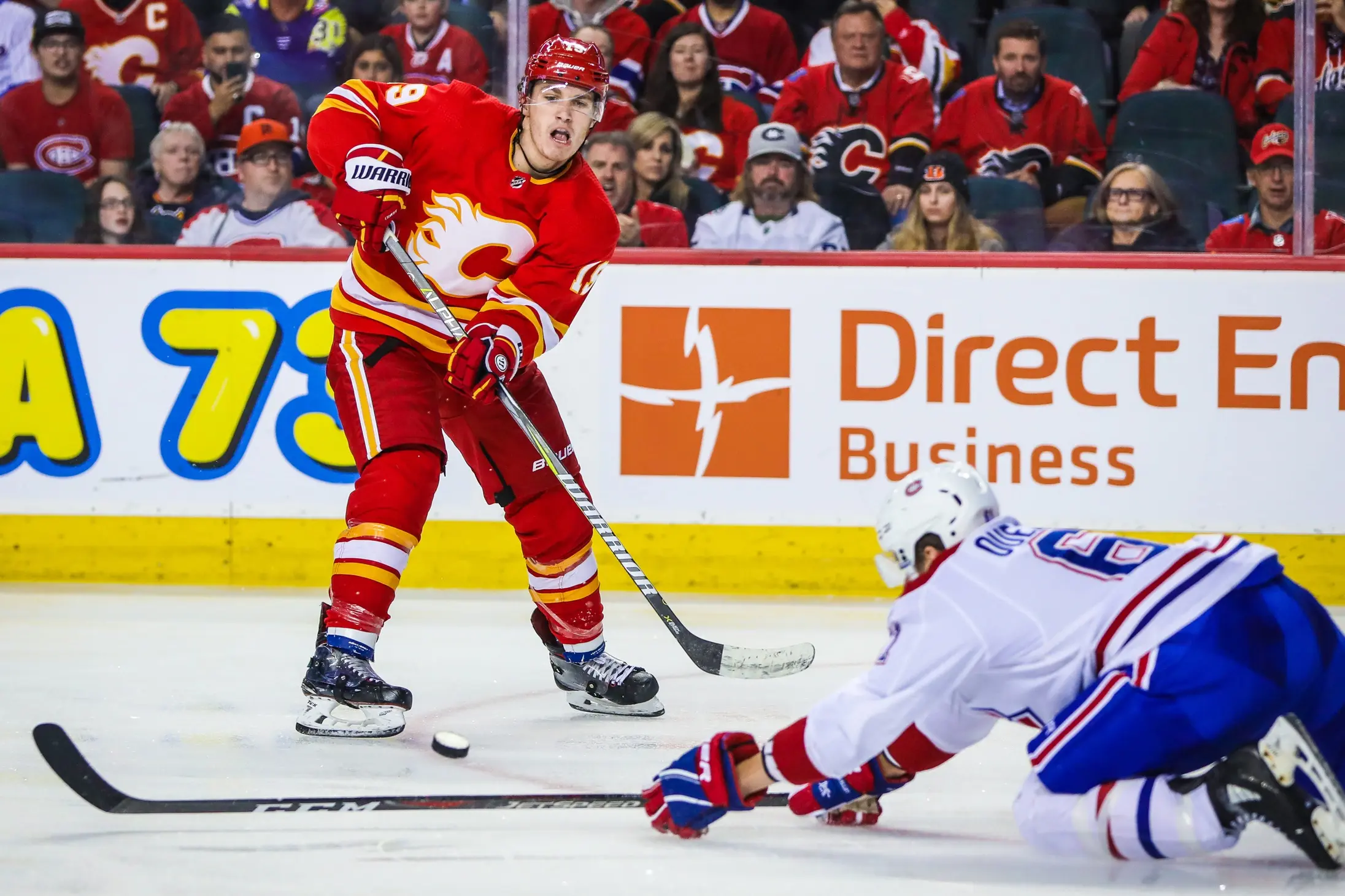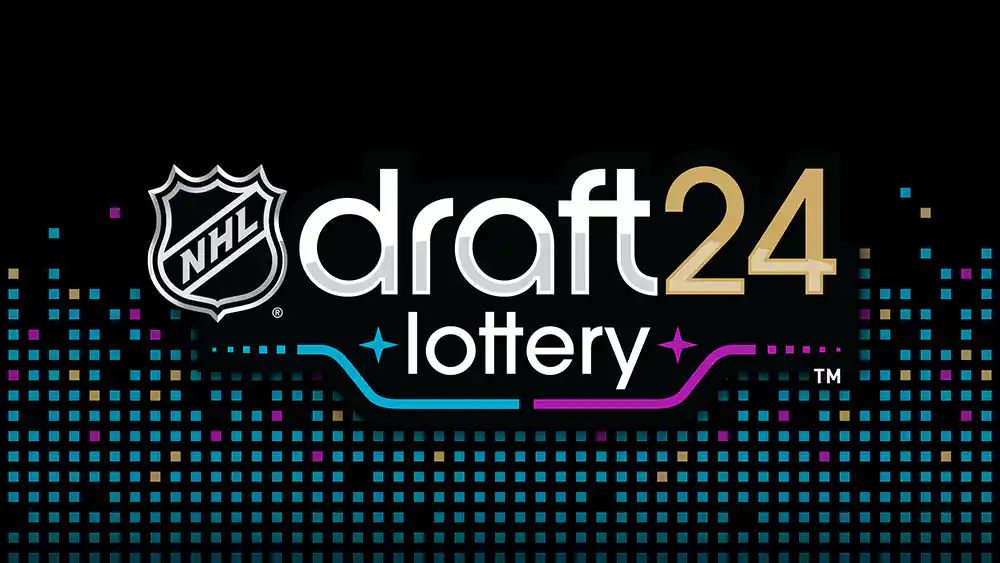Giving Matthew Tkachuk a bridge deal is the Flames’ best move

By Ryan Pike
4 years agoIt hasn’t always been easy, but Calgary Flames general manager Brad Treliving should be given credit for his ability to manage the team’s salary cap. Even though at times it’s taken creative measures, he’s always managed to wriggle his way through tough cap situations. This off-season he’ll face another test in the form of Matthew Tkachuk’s new contract.
But a bridge contract could go a long way in giving Treliving’s team some flexibility.
A simple payroll philosophy
Roughly six months after taking on the job, Treliving signed his first major player contract when he got TJ Brodie to agree to a five year contract worth $23.25 million (a $4.65 million AAV). It was seen as a pretty savvy move and a precursor to the expected contract extension for Flames captain Mark Giordano the following year.
But when details came out regarding Brodie’s contract structure, something odd emerged: the first year of Brodie’s deal saw him make only $3.9 million, with the remainder of his salary spread through the remaining four seasons. The detail was significant because the 2015-16 season was the final year of Giordano”s existing contract. While it was never made explicit, the message was pretty clear: either Brodie’s camp or Flames management (or both) felt it symbolically important enough that Brodie not make more than the team’s captain.
The Giordano cap is born
Throughout his tenure, Treliving has operated under a pretty simple logic for cap distribution: the team has 23 mouths to feed, so they have to make decisions. Given all that, the evident main rule is that the team’s best players make the most money.
When Giordano signed his extension, it was August 2015 and he had just finished his best season to-date – and second strong season since becoming Flames captain. He had generated a crazy amount of Norris buzz – derailed by his late season bicep tear – and so it made a lot of sense to lock up the veteran player to a long-term deal. He was signed to six year deal worth $40.5 million (a $6.75 million AAV) that began in 2016-17.
A year later, Gaudreau was signed to an identical six year deal worth $40.5 million (also a $6.75 million AAV). At the time Gaudreau had just a pair of seasons to his credit and while he had been productive – he had 78 points in 79 games in his second season – it would’ve been a stretch to say he was the Flames’ best player. Best offensive weapon? Sure. But not their undisputed best player. So Treliving dug his heels in and, seemingly determined to pay Gaudreau for what he’d done and not what he was going to do, got him to eventually sign off on a deal that paid him the exact same cap hit as the team’s captain.
Through three seasons, Tkachuk has quickly emerged as one of the better two-way players and agitators in the league. He might be the second-best two-way Flames forward behind Selke contender Mikael Backlund. Is he more important to the team’s success than Gaudreau or Giordano? Not yet, but he might be in a few seasons.
Tight cap, but a bridge could fix it
As we’ve documented, the Flames have a tight cap situation to deal with. To afford to sign Tkachuk to a long term deal and retain some flexibility, the Flames will likely need to move out a big piece. But another option could be to simply bridge Tkachuk.
I’ve admittedly been operating under the assumption that whatever form Tkachuk’s deal would take, it would likely include him making $6.75 million for the three remaining seasons on Giordano and Gaudreau’s contracts – the other years of the deal would have a higher salary, which would bring the deal to a cap hit of somewhere around $7.9 to $8.5 million depending on length.
But a discussion this past week on Sportsnet 960 The Fan between Pat Steinberg, Ryan Pinder and Will Nault changed my mind a bit regarding bridge deals.
The Flames have a limited competitive window just opening up. Cap flexibility is at a premium, and they’re a group that would probably like to tinker with their roster a bit to give them the best chance possible at having a parade before 2022. If they can bridge Tkachuk and keep him at Giordano and Gaudreau money, it helps the Flames maximize their chances.
The best move for both sides
It takes two sides to make a deal. The Flames perspective on this is easy: it keeps the internal cap structure intact and punts the big money contract for Tkachuk down the road a bit. It also allows them the aforementioned cap wiggle room.
But from Tkachuk’s perspective, it makes sense, too. Signing a long-term deal right away is risky for Tkachuk, particularly in that it locks him in at a cap number while the cap is seemingly perpetually rising. Signing for a shorter deal allows him to go for a second RFA deal in the summer of 2022 with six full seasons under his belt, but it also allows for the possibility that his role will continue to grow as he matures as a player. If nothing else, doing two shorter deals instead of one big one allows Tkachuk’s representation to maximize his value over the period – and it potentially maximizes his potential to get some hardware with the Flames over the next several seasons, which in turn would also likely bump up his value.
If the Flames are successful over the next three years, it’ll help their core players maximize their earnings over the long term. It makes sense for the Flames and for Tkachuk to work towards a three year bridge deal with a $6.75 million cap hit to get the team through their competitive window with some flexibility, and allow Tkachuk a chance at a big-time payday in a few seasons.
Recent articles from Ryan Pike





